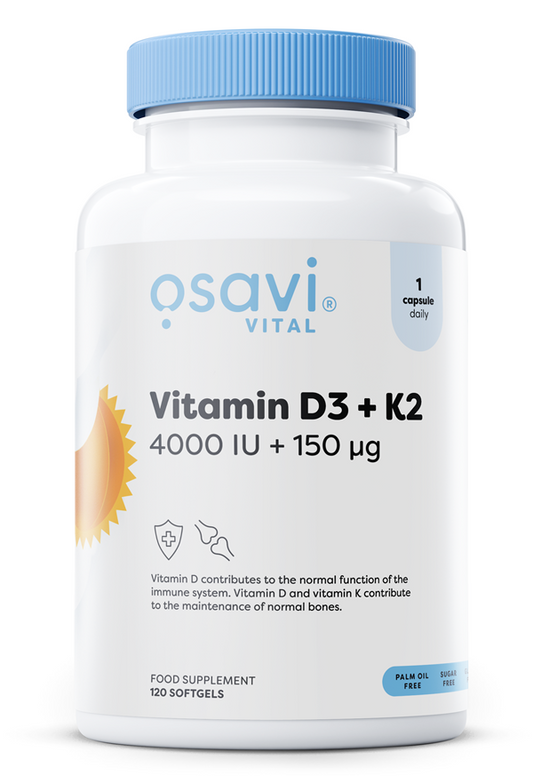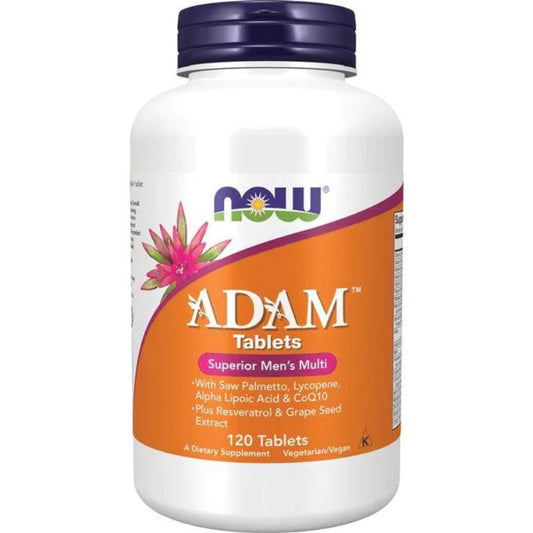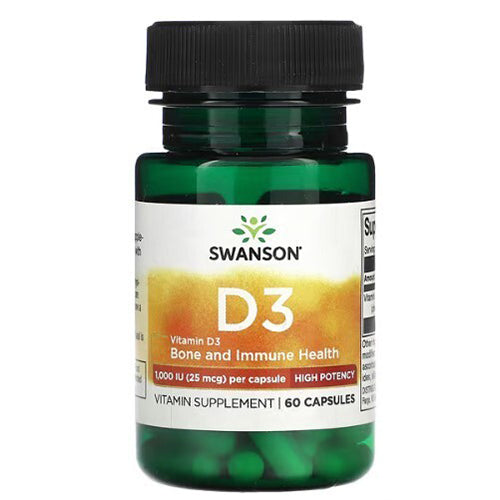
Joint and Bone Support for a Healthy Spine
Jakub SkibaMaintaining healthy joints and strong bones is essential for an active and comfortable life. Many people experience stiffness, tension, or discomfort in the back and neck, but often overlook how nutrition and lifestyle directly impact musculoskeletal health. Bones, spinal discs, muscles, and ligaments rely on key vitamins, minerals, and nutrients to stay strong, flexible, and resilient. Without adequate support, daily activities like lifting, bending, or even sitting for long periods can feel challenging, and minor discomfort can gradually develop into persistent pain.
Nutrient deficiencies can quietly affect your spine, joints, and surrounding muscles, weakening structural support and reducing mobility. For example, low levels of vitamin D, magnesium, or collagen can compromise bone density, reduce spinal disc elasticity, and increase tension in muscles and ligaments. Beyond nutrition, posture, hydration, sleep, and gentle exercise all contribute to spinal stability and joint comfort. By combining these strategies, you can naturally support your bones, maintain joint flexibility, and help prevent inflammation or stiffness from interfering with daily life. In this article, we’ll explore essential nutrients, vitamins, and lifestyle habits that contribute to joint and bone health, focusing on natural ways to support a strong spine, maintain mobility, and optimize musculoskeletal function.
Key Causes of Joint and Spinal Discomfort
-
Muscle tension or strain from poor posture or overuse
-
Reduced bone density or spinal degeneration
-
Weak ligaments or discs due to age or inactivity
-
Nutrient deficiencies affecting bone and muscle strength
-
Inflammation in joints or spinal tissues
Common signs may include stiffness, dull aches, sharp pain during movement, or fatigue in surrounding muscles.
Nutrients That Support Spinal and Joint Health
Vitamin D
Supports calcium absorption, bone strength, and muscle function. Sources: sunlight, salmon, fortified milk. Supplements: 800–2000 IU/day (Vitamin D3).
Magnesium
Supports muscle relaxation, nerve function, and bone strength. Sources: almonds, spinach, pumpkin seeds. Supplements: 300–400 mg/day (glycinate or citrate).
Calcium
Essential for strong bones and spinal stability. Sources: yogurt, tofu, leafy greens. Supplements: 1000–1200 mg/day (paired with vitamin D).
Vitamin K2
Helps direct calcium to bones, improving density and joint support. Sources: natto, hard cheeses, egg yolks. Supplements: 90–200 mcg/day (MK-7 form).
Collagen
Supports spinal discs, ligaments, and joint flexibility. Sources: bone broth, gelatin, chicken skin. Supplements: 5 –10 grams/day with vitamin C.
Omega-3 Fatty Acids
Helps maintain healthy joint tissues and reduce inflammatory stress. Sources: salmon, flaxseeds, walnuts. Supplements: fish oil (EPA & DHA), 1000–2000 mg/day.
Lifestyle Tips for Supporting Joints and Bones
-
Stretch & Strengthen: Gentle yoga, pilates, or core exercises support spine alignment.
-
Improve Posture: Adjust desk setup, sleeping position, and daily standing habits.
-
Eat Anti-Inflammatory Foods: Berries, colorful vegetables, fatty fish, nuts, olive oil.
-
Stay Hydrated: Spinal discs need water to remain flexible.
-
Prioritize Sleep: Deep sleep helps repair muscle, nerve, and bone tissue.










